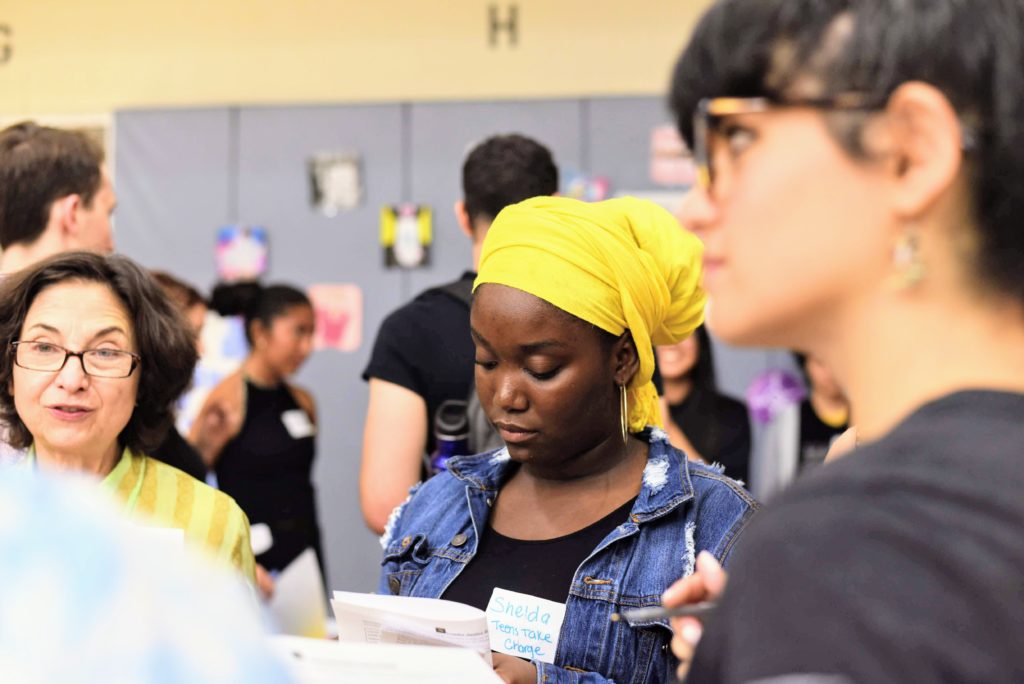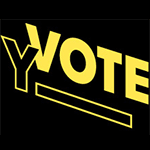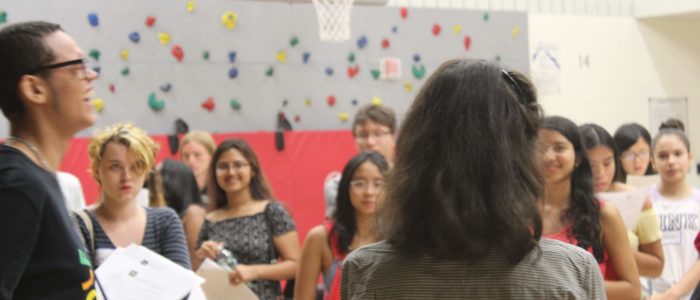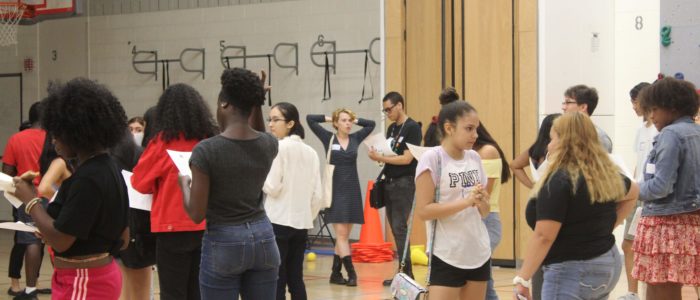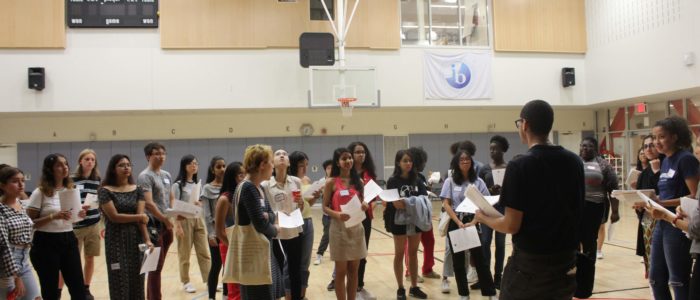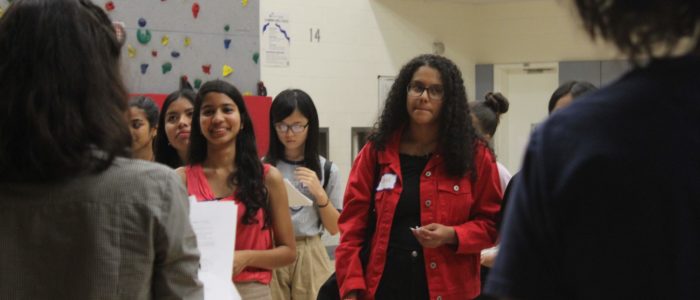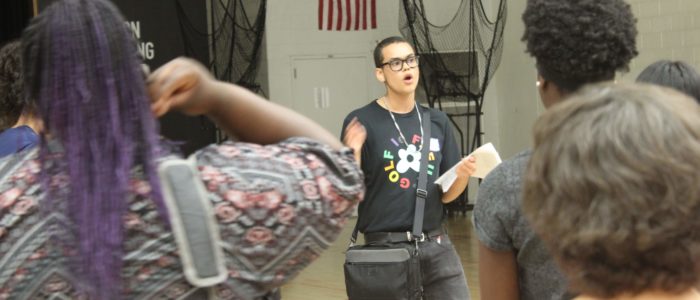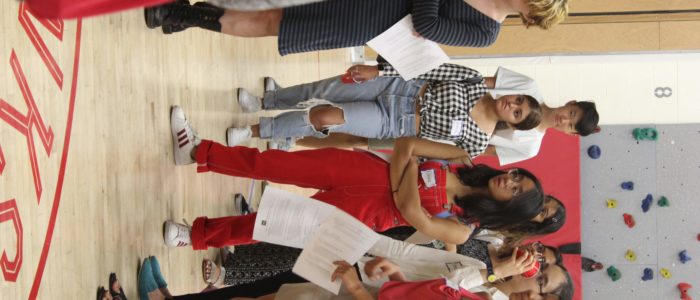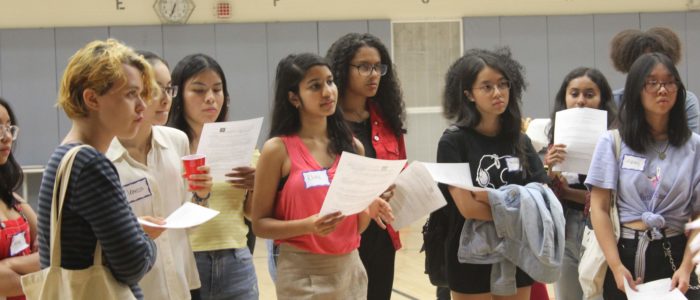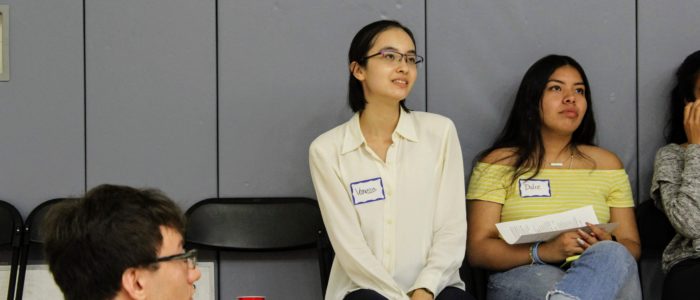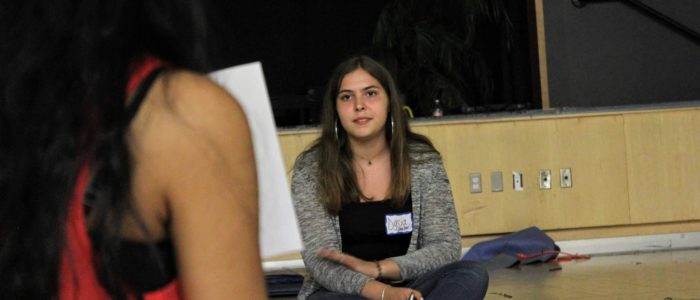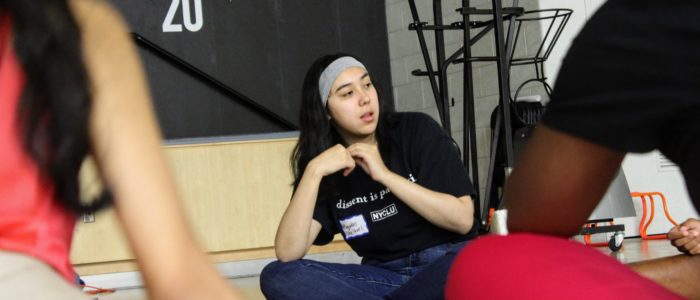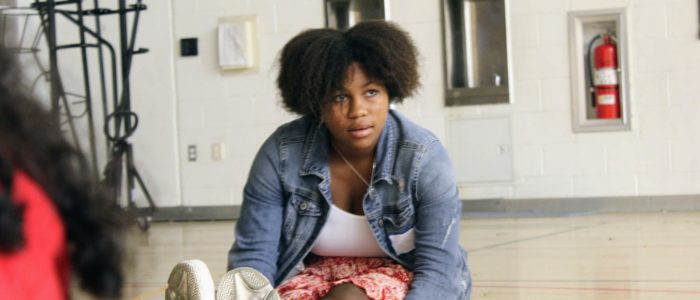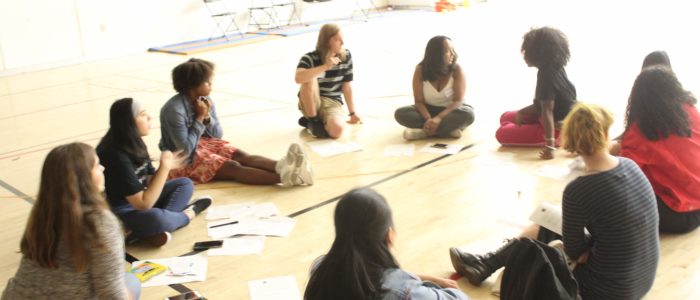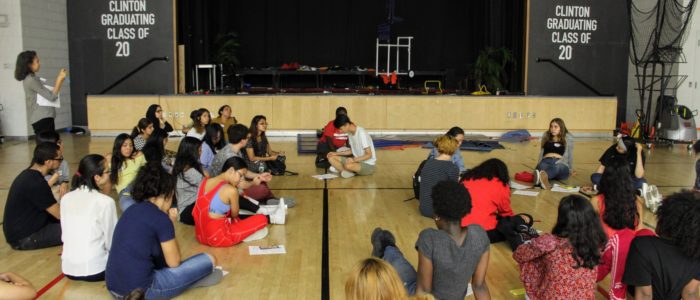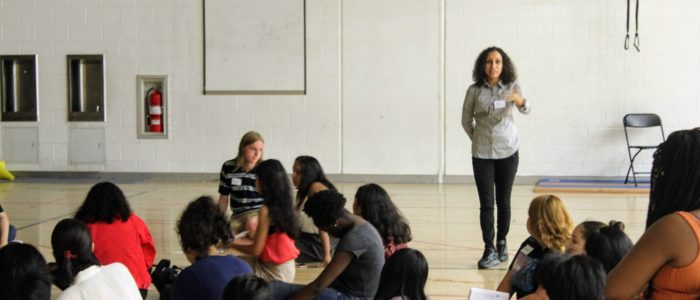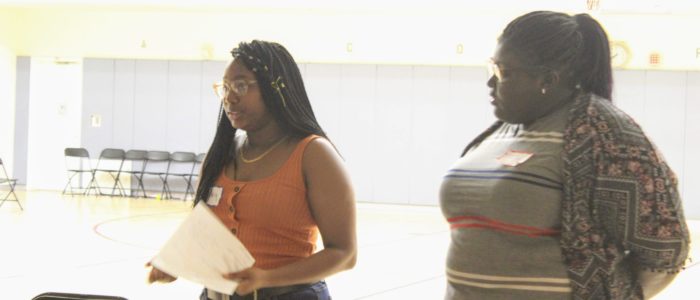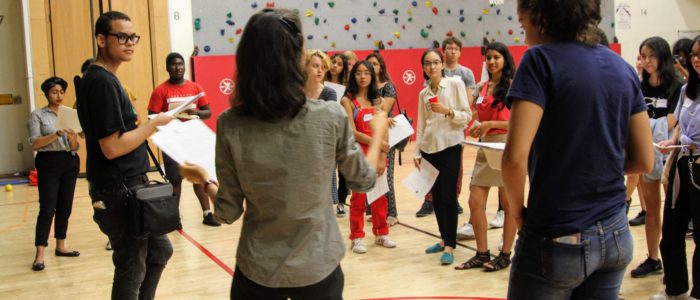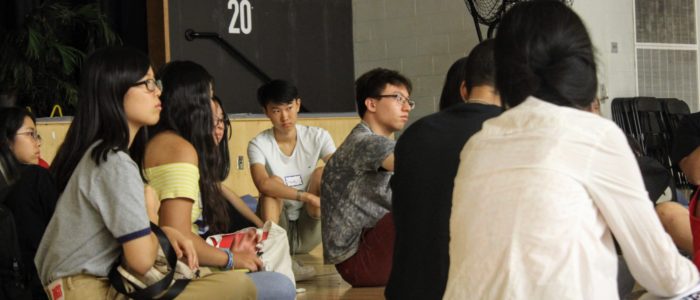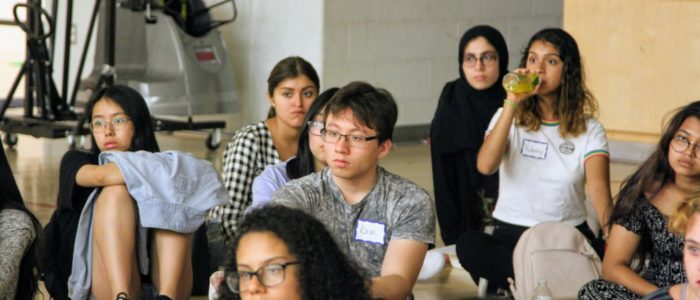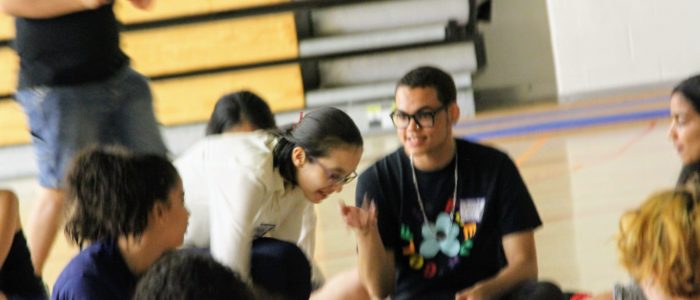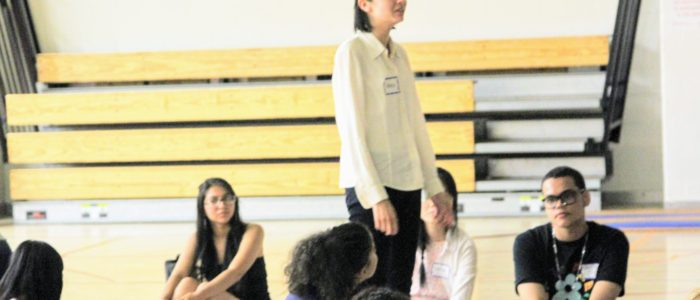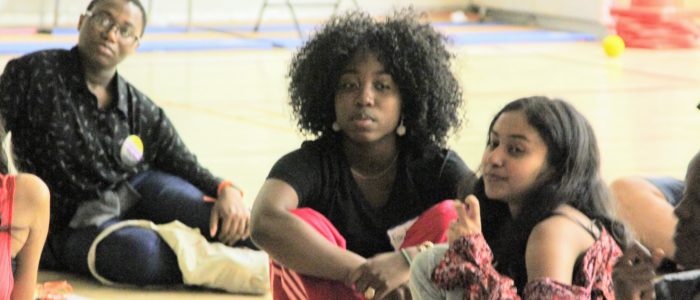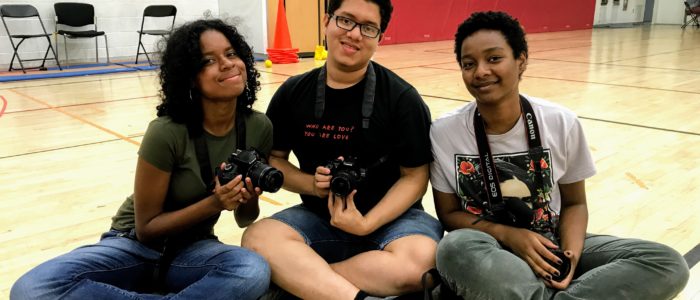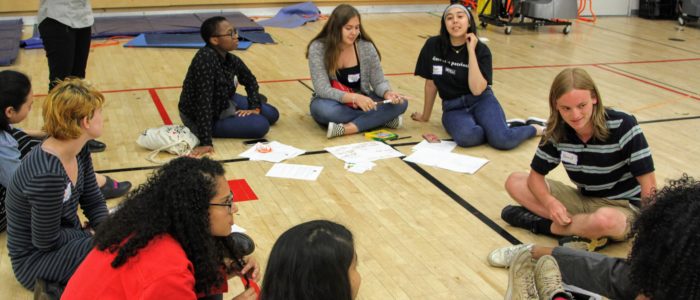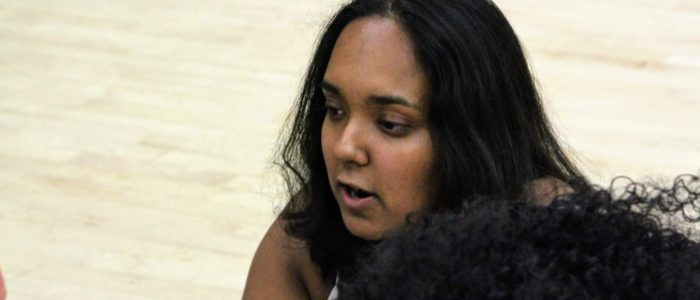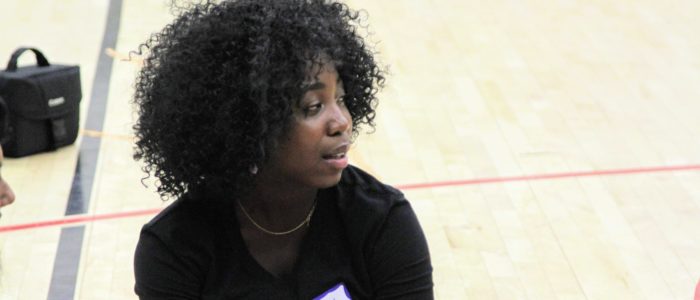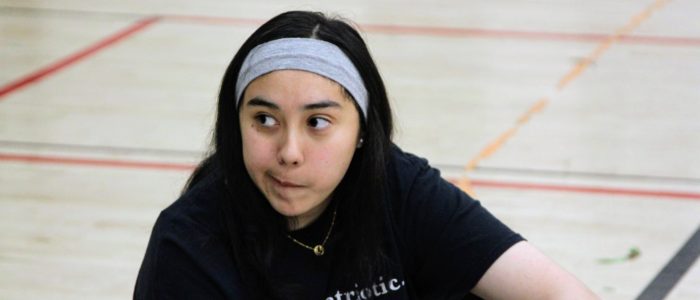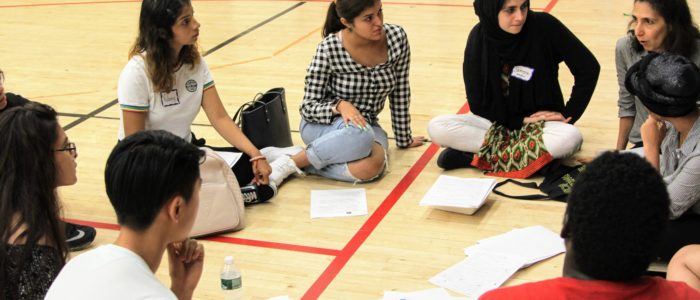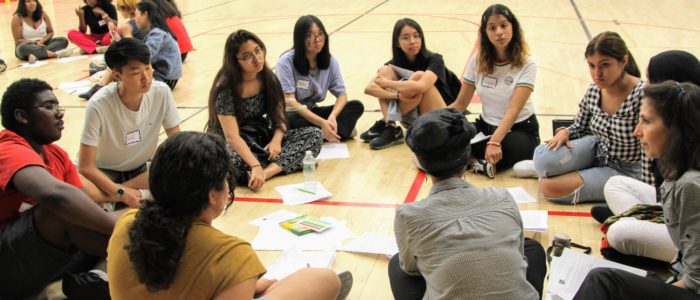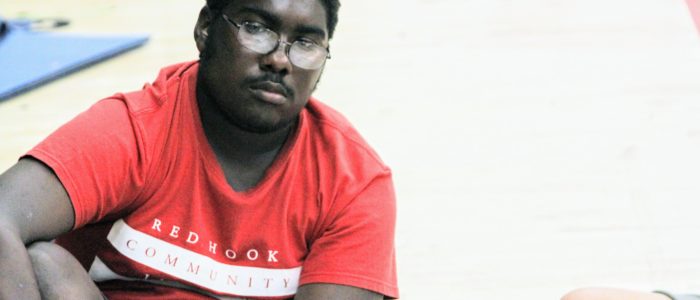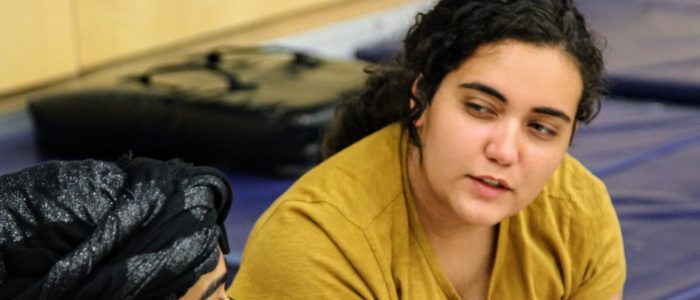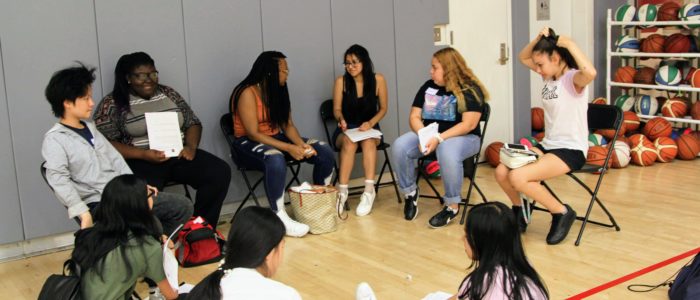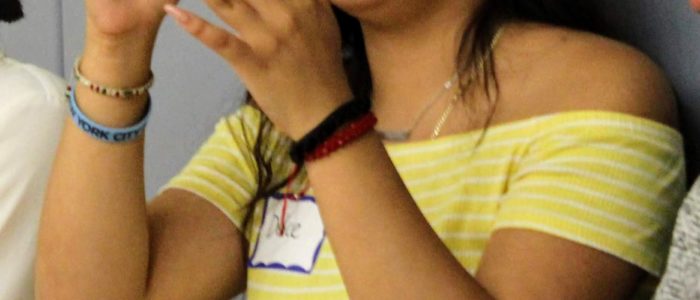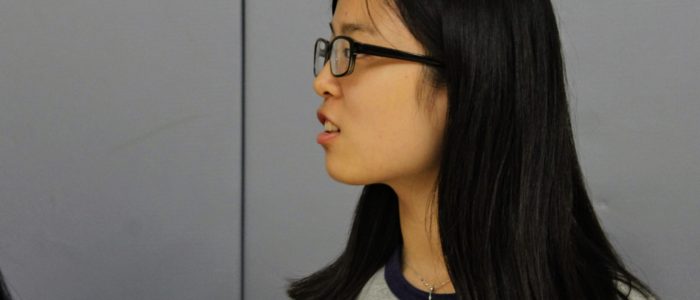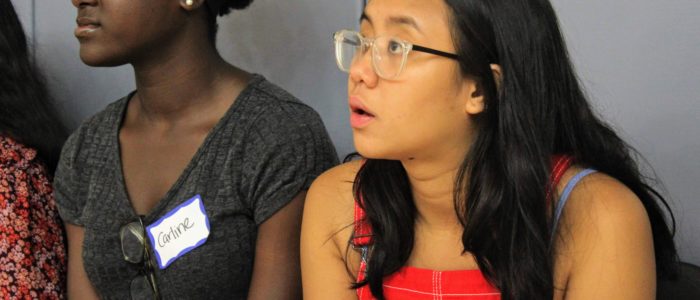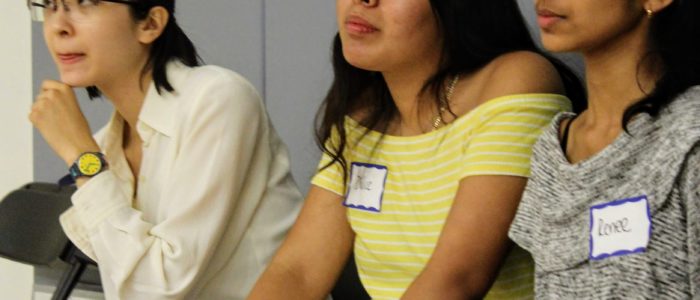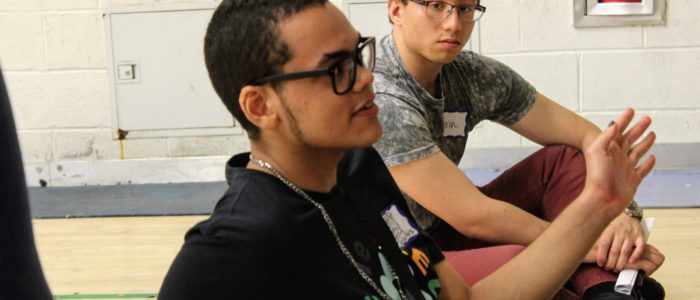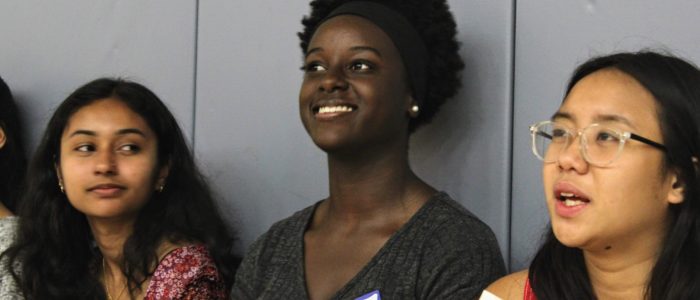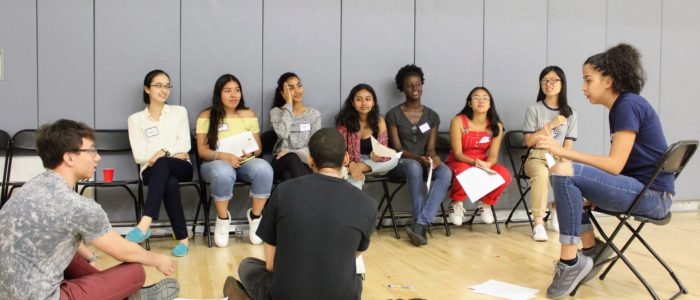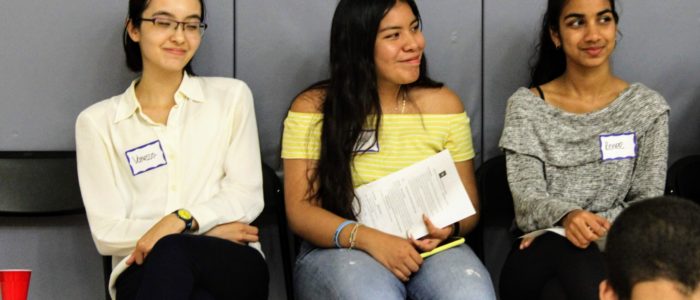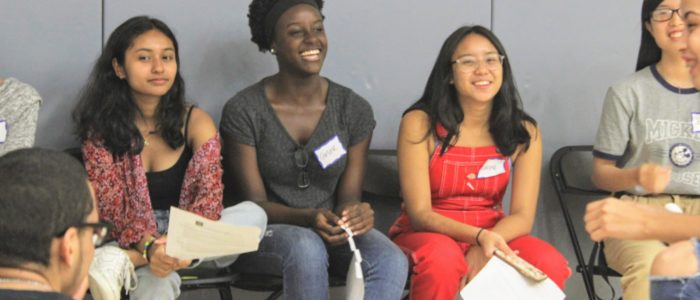What a thrill to head into our third year of programming, with a stellar crew of veteran YVoters serving as co-facilitators and heads of this year’s Action Groups.

Over the course of several meetings, they rigorously analyzed programming from last summer and throughout the school year, thinking about what worked, what could be improved, and what we didn’t engage with and should have. We all worked hard to devise powerful–and fun–programming to have the greatest impact in the limited time we have with new YVoters over the summer (just 12-18 hours!)
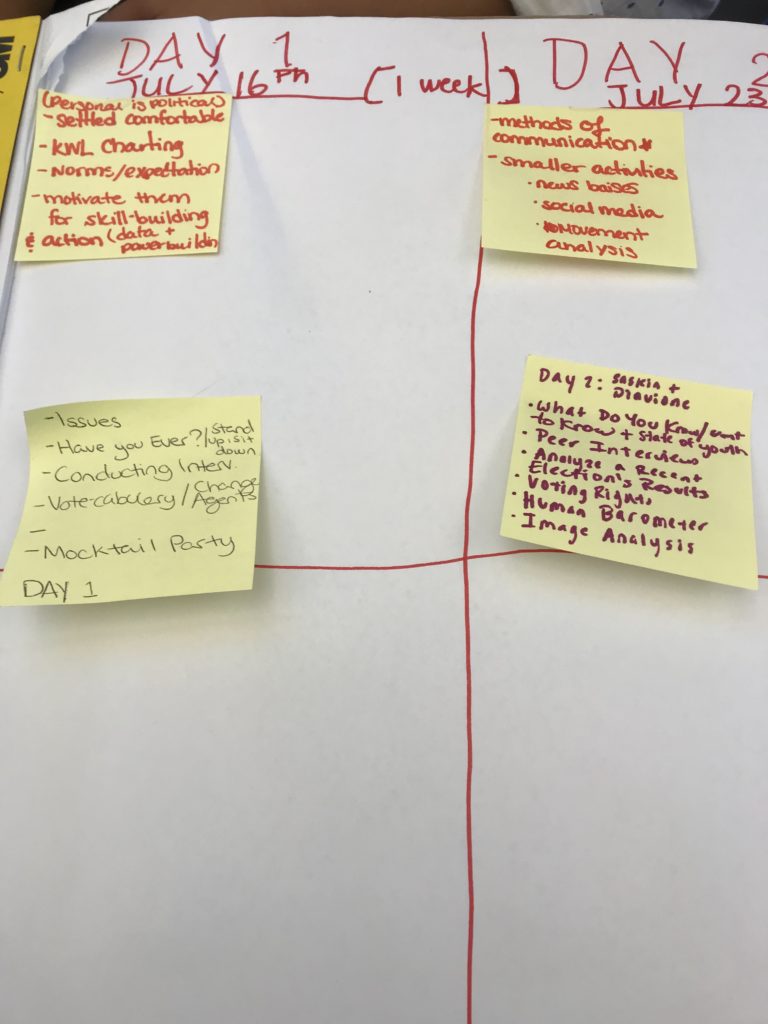
Lickety split, our first day with our new YVoters arrived. We were thrilled to welcome aboard 40+ civically-interested young leaders from over 20 high schools across all five boroughs.
Our theme for the first session? The Personal Is Political–and the Political is Personal. It sure is. The moment they arrived, we swept them up in community building–and knowledge building–with a few rousing rounds of We’ve Got Issues, in which each person needed to figure out what social issue they were by how other YVoters reacted to them.
Our facilitators introduced themselves and had participants introduce themselves and share one reason they chose to be part of YVote:
Having warmed up the room, facilitators shared context about why YVote was created, why this work matters, what we’ve done to date, and what we WILL do together.
Officially invigorated, we broke into small groups to test our existing knowledge about voting, and learn more about it the fun and memorable way–through games!
Games make the learning go down easy–and YVoters derived keen insight about the state of voting (and lack thereof) in our country. This helped us all codify insights about what we know, and what we want to know about youth voting and how to impact it.
It also led to some important discussion about what discourages young people (and all people) from voting…
We’ve got our work cut out for us–and that’s why it’s important to learn from the history of youth social movements globally. Nuzhat facilitated a powerful presentation and conversation about youth activism for us to draw upon
Nuzhat also introduced the idea of a Youth Agenda, noting that we’ll be working together this summer–and over the next 15 months–to codify it and mobilize youth–and intergenerational allies– around our #2020VisionForChange. Any good agenda has three key parts: Educate, Empower, and Act. We broke into small groups to discuss, and then share thoughts about what issues resonate most with us and how they will inform a youth agenda.
A key belief and methodology of YVote is that people are (or can be…) motivated to vote through their passion for issues and coming to understand how electoral politics impact (or could impact) the issues they care most about. As such, we organize into issue-based Action Groups to, wait for it, Educate, Empower, and Act. This year’s groups, based on students’ interests, are Criminal Justice, Environmental Justice, Gender Justice, and Immigration Justice. We spent time in our groups getting to know one another and identify the particulars that interest us most, why, and what we want to learn more about.
We started to talk about how the media affects, and sometimes distorts, our understanding of issues.
We also discussed what skills we feel we’ll need to build, individually and collectively, in order to have the kind of influence we seek.
We segued to focus on what will be our culminating event of the summer: our Youth Town Hall for Elected Officials and Civic Leaders on Aug 13, which will be a powerful vehicle through which to further develop the Youth Agenda around the issues we care about, and to support participants in advancing their (and our) Education, Empowerment, and Action. To do so, we want to have as many key folks present as possible.
One particularly important category of people to invite is Elected Officials and Civic Leaders. These are the people who need 1) personal touch from constituents 2) lots of lead time. We underscored that over the course of YVote–and your lifetime as an activist and change-maker, you will want to be in communication and develop relationships with key leaders. Tonight, that means creating some talking points that we want to communicate with electeds and civic leaders about our Town Hall.
It also means knowing who your electeds are and how to contact them. YVoters used this worksheet (along with the Find Your Representative website and Council Members and Districts website) to find their local and state representatives (Senators, Representative, State Senator, Assembly Member, City Council Member) as well as to identify and engage community leaders and others they’d like to invite.
With that, our time came to an end and we left, exhausted and invigorated by what lies ahead this summer.
YVote Summer Session 2
And we’re back. The theme for this week’s YVote is building and sharing knowledge. Towards this end, we started with a Human Barometer exercise to gauge our thinking about vital questions like:
- Do you think every citizen in this country currently has an equal opportunity to vote?
- Do you think anyone living in this country, regardless of citizenship or criminal record, should have an equal opportunity to vote?
- Do you think every citizen in this country has a responsibility to vote?
- Do you think your vote will matter in the next election you are eligible for?
- Do you think your generation’s collective vote matters in the next election you are eligible for?
YVoters positioned themselves across the room on a continuum, with the far right representing absolute agreement and the far left representing absolute disagreement. (We also created a separate area for people to raise questions, since at YVote we’re all about the questions and engaging with complexity and nuance.) Fascinating conversation ensued.
We had great discussion about why we think the way we think–and whether anything could make us change our mind. We also talked about why certain people choose not to vote and others do vote. And we talked about what might happen if the 86% of 18 and 19 year olds who didn’t vote in 2014 midterms voted…
The wonderful NYVotes Street Team (Olivia, Emily, Kevin, and Maya) joined us to help us deepen our knowledge of Who Votes, Who Doesn’t, Whose Votes Count, and Why It Matters through Election Analysis of the recent Queens DA Race.
| Following up on on our identification of who our electeds are in our last session, we used the lens of the recent Queens DA Race, inclusive of looking at differential voting patterns by age and race, to: |
| * Focus on the roles of different electeds and why they matter * Analyze voting patterns across the city, by geography and demographics * Look at what the data tells us about the most underserved/underrepresented voting district * Explore implications for our Aug 10 Day of Action, exploring how can we use time in the community to better understand barriers and opportunities to improve voter turnout |
After learning about NYC Votes exciting upcoming We the Young People hearing, which YVoters will proudly participate in, we split into our Action Groups. YVote was so fortunate to be joined by amazing and generous experts (bios here) to help us increase knowledge necessary to formulate our youth agenda. We tried to focus on the intersection of our issue and electoral issues and voting (i.e. “what kinds of bills would you like to see passed—at city, state, and federal levels—to support XX justice?” “What gets in the way of supportive legislation being passed?” “What do you think are key ways to motivate voters to support candidates who are forward thinking about XX”)
Here’s an example of the Environmental Justice Group’s journey, which interviewed Caleb Schwartz from Divest Harvard and Natalie Sweet from This is Zero Hour.
The Criminal Justice Group benefited from the deep thinking and passion of Lucy Lang and Kali Villarosa from the Institute for Innovation in Prosecution at John Jay College of Criminal Justice.
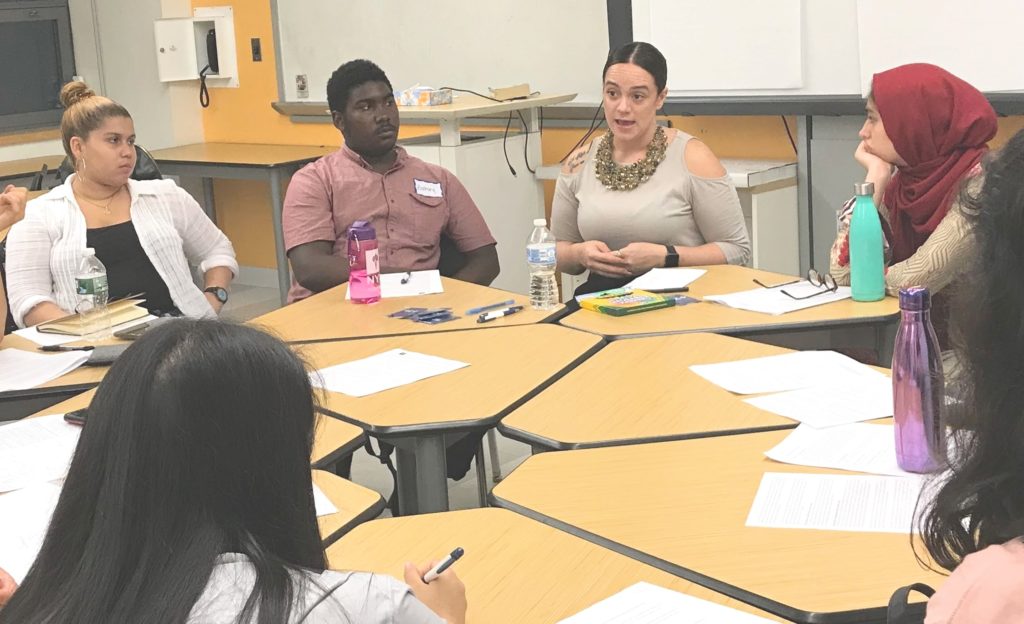
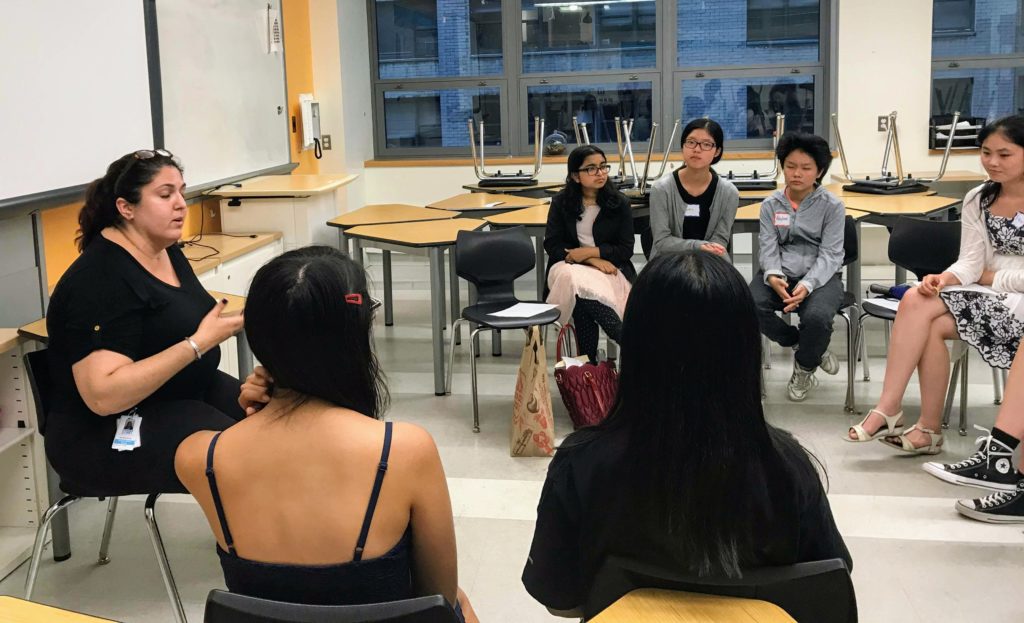
- After our speakers left, we had a bit of time to synthesize what we learned in our Action Groups, discussing what we heard, what surprised us, what seems ost important with regard to The Youth Agenda, what we want to learn more about–and implications for our Activation Stations. Three weeks to go…
YVote Summer Session 3
We’re a week out from our Youth Town Hall and energy–and nerves–are running high. We kicked off the session working on skills we’ll want to hone for next week: networking. A room full of electeds and civic leaders can be intimidating, so we want to give thought to how we want to introduce ourselves, share our passion for the issues, and present the changes we’d like to work for together.
Best to start by networking with–and getting feedback from– each other, right?
Figuring out what an elevator pitch is–and how to write and develop one authentically isn’t easy
We reconvened in our action groups to analyze how media covers our issues, in the hopes of becoming more media literate and savvy. We each tracked coverage from different sources over the last two weeks to understand dominant themes–and disparities in coverage.
We discussed: What are the dominant narratives? Is this different in different news sources and if so, how? How much of what you read touches upon “a youth agenda”? What are ways you think media coverage around your issue could be more engaging for young people?
We also discussed how coverage makes us FEEL, and implications for civic involvement and voting. How can we harness the power of the media to feel more empowered than depleted? What are the implications for the language we choose and use?
We boogied down to the ground floor of the building to inspect the gymnatorium we’ll be conducting next week’s Town Hall in, and to envision how we want to make best use of the space for our Activation Stations, and for intergenerational mingling.
Adam provided a good overview of what the Town Hall is–and facilitated discussion about what we want it to be.
Muqadas shared some highlight from our 18 in ’18 party last fall and what we might want to emulate about it for this event (like our fab Voto booth…)
Invigorated–and maybe a wee bit intimidated–we broke into Action Groups for further planning.
It’s not easy to pull groups this engaged away from their work to share out and get feedback from one another, but Lead Facilitator Melody has her creative ways…
One of the best parts of being part of a group of young activists is that you get GREAT feedback. And our action groups sure did.
YVoters do a great job of both supporting one another AND pushing one another to engage with complexity and to be as inclusive as possible.
With just a week to go, there’s still lots to do. And our Action Groups did a great job of divvying things up and creating concrete assignments for the week.
Bring. It. On.
YVote Session 4
Well, Session 4 was our Youth Town Hall, which you can read about here, but after our external guests left, we engaged in a powerful closing ritual enabling us to each connect with one another, and to center ourselves around our individual and collective purpose and passion now and in the future.
We couldn’t ask for a better summer together. Thank you for sharing it with us!
Special thanks to the Clinton School for Writers and Artists for hosting our Summer Sessions and to the amazing Jane Mercaldi for underwriting the costs of our Summer of Action!
